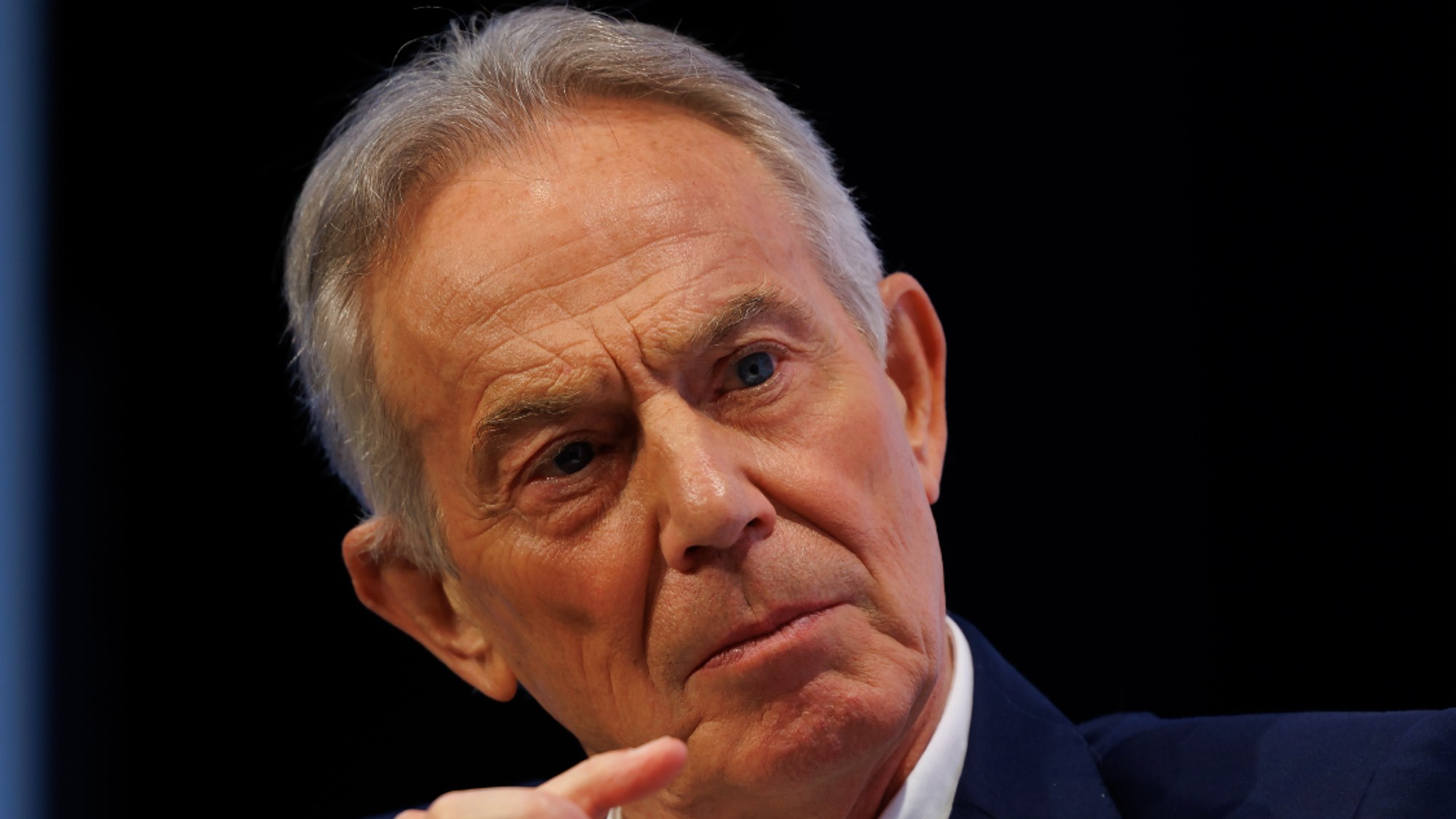On Leadership: why Tony Blair's new book has divided critics
The former Labour leader has created a 'practical guide to good governance' but should Keir Starmer take note?

A free daily email with the biggest news stories of the day – and the best features from TheWeek.com
You are now subscribed
Your newsletter sign-up was successful
Tony Blair remains one of the UK's most divisive former prime ministers, and his latest book "Tony Blair on Leadership", his first since 2010's "A Journey", will continue to divide his harshest critics and most ardent supporters.
Written for those in your life that want to run a country, it is a "fascinating treatise on leadership", said former SNP leader Nicola Sturgeon in The Guardian. Blair has created something of a "handbook", a "practical guide to good governance". His advice is "sound", indeed "I found myself nodding along repeatedly" and wishing it had been available to me before I "entered high office".
However, much of his counselling lies under the "easier said than done" category and Blair fails to deal with the "myriad factors" that "conspire to throw a leader off course". He reveals himself to be "truly myopic" when it comes to the threat of AI and is something of a "fanboy when it comes to the Elon Musks of this world".
As for the subject that tainted Blair's time in government, the Iraq war, or "one of the most disastrous policy decisions in recent history", according to Eoin O'Malley in The Irish Independent, Blair goes further than ever before. He admits making a "fundamental miscalculation" about how easily the country could transition from "dictatorship to democracy" and concludes that people's anger is "understandable". Not quite a "mea culpa" but a change in tack, perhaps.
Has he mellowed in older age? Well, he writes like a "fortune cookie", said Tim Stanley in The Telegraph. In tough negotiations, leaders would do well, Blair suggests, to remember that "honey is better than vinegar unless you're tossing lettuce leaves for a salad". Indeed.
He throws in a few capped up phrases, too, to underline that something important is coming up, said Isabel Hardman on the i news site. "NEW TECHNOLOGY", for example. And he is keen on a motivational mantra such as the enthusiastic "Go to it!".
He seems to be more sympathetic to the plight of dictators and plutocrats these days, too. So much so, said Stanley in The Telegraph, that some will see this tome as evidence that Blair has become "dangerously amoral". He does plead the cause of those "reasonable and open-minded" leaders of non-democratic countries who don't hate democracy but instead call into question "its ability to take decisions and implement them". After all, what about China’s eradication of poverty? And Saudi Arabia's moves to reform? The book starts to feel "troublingly applicable to Kim Jong-Un".
On an equally controversial subject we are told that Boris and his staff got too hard a time over Partygate, which was "inevitable" because they were, in Blair's words, "mandated to work together".
But Blair "deserves to be taken seriously by anyone interested in how democratic power is effectively wielded", said Andrew Marr in the The New Statesman. The newest tenant at Number 10 and Blair's "unacknowledged primary reader", one Keir Starmer, could do worse than to make this his bedtime reading.
The Week
Escape your echo chamber. Get the facts behind the news, plus analysis from multiple perspectives.

Sign up for The Week's Free Newsletters
From our morning news briefing to a weekly Good News Newsletter, get the best of The Week delivered directly to your inbox.
From our morning news briefing to a weekly Good News Newsletter, get the best of The Week delivered directly to your inbox.
A free daily email with the biggest news stories of the day – and the best features from TheWeek.com
-
 How the FCC’s ‘equal time’ rule works
How the FCC’s ‘equal time’ rule worksIn the Spotlight The law is at the heart of the Colbert-CBS conflict
-
 What is the endgame in the DHS shutdown?
What is the endgame in the DHS shutdown?Today’s Big Question Democrats want to rein in ICE’s immigration crackdown
-
 ‘Poor time management isn’t just an inconvenience’
‘Poor time management isn’t just an inconvenience’Instant Opinion Opinion, comment and editorials of the day
-
 ‘Poor time management isn’t just an inconvenience’
‘Poor time management isn’t just an inconvenience’Instant Opinion Opinion, comment and editorials of the day
-
 ‘The forces he united still shape the Democratic Party’
‘The forces he united still shape the Democratic Party’Instant Opinion Opinion, comment and editorials of the day
-
 How are Democrats trying to reform ICE?
How are Democrats trying to reform ICE?Today’s Big Question Democratic leadership has put forth several demands for the agency
-
 Big-time money squabbles: the conflict over California’s proposed billionaire tax
Big-time money squabbles: the conflict over California’s proposed billionaire taxTalking Points Californians worth more than $1.1 billion would pay a one-time 5% tax
-
 Trump links funding to name on Penn Station
Trump links funding to name on Penn StationSpeed Read Trump “can restart the funding with a snap of his fingers,” a Schumer insider said
-
 Trump reclassifies 50,000 federal jobs to ease firings
Trump reclassifies 50,000 federal jobs to ease firingsSpeed Read The rule strips longstanding job protections from federal workers
-
 Supreme Court upholds California gerrymander
Supreme Court upholds California gerrymanderSpeed Read The emergency docket order had no dissents from the court
-
 Trump demands $1B from Harvard, deepening feud
Trump demands $1B from Harvard, deepening feudSpeed Read Trump has continually gone after the university during his second term